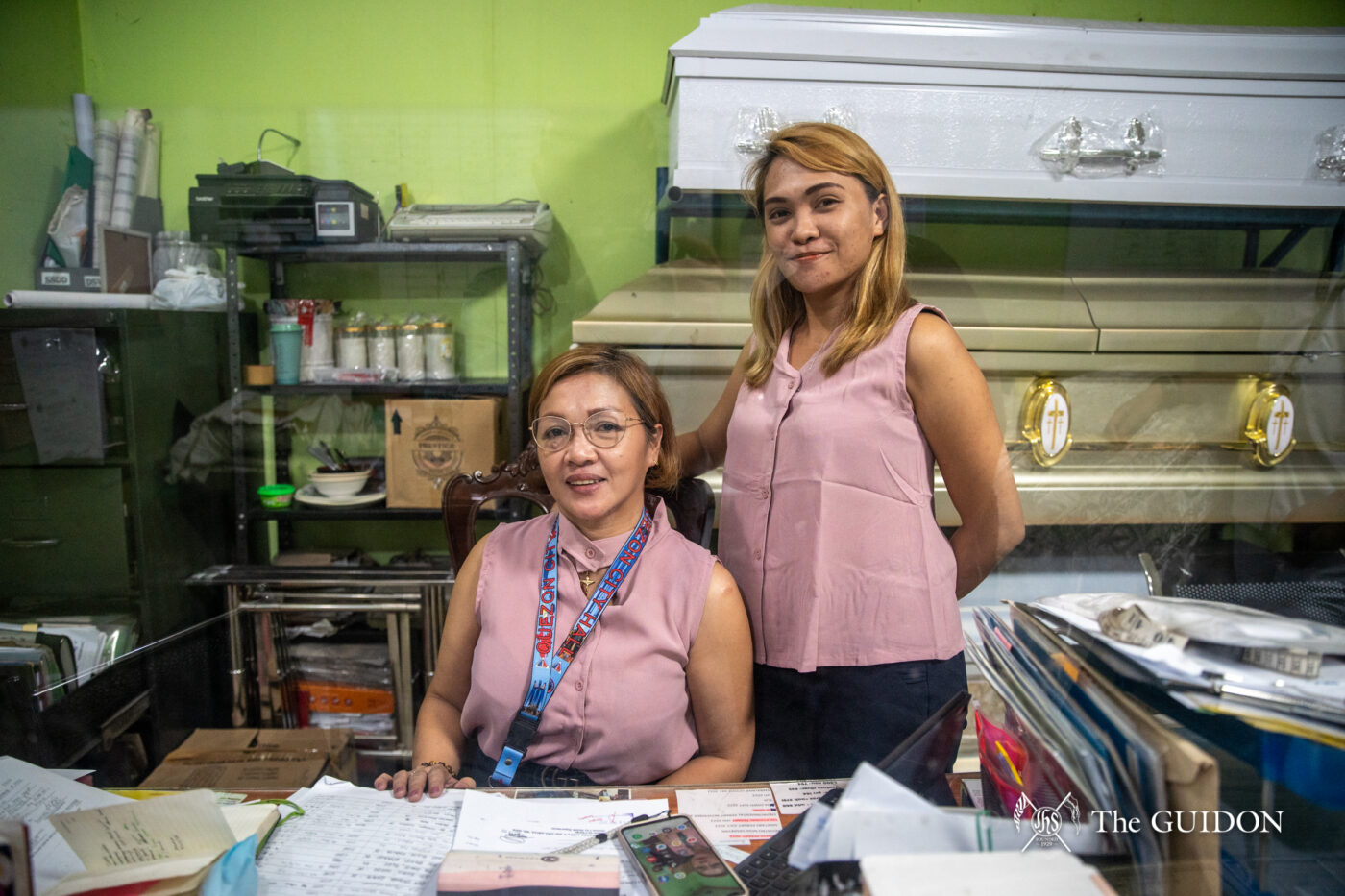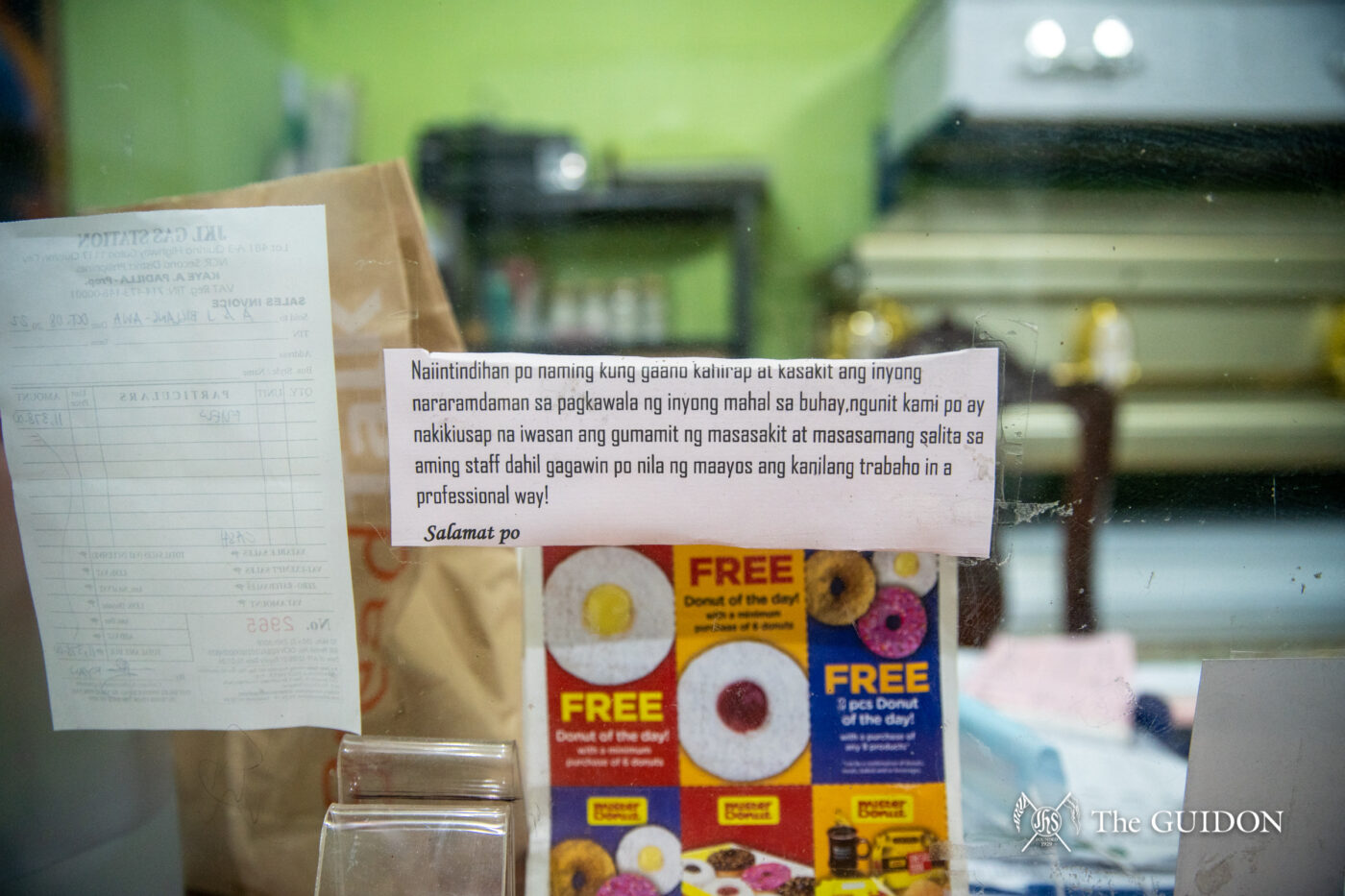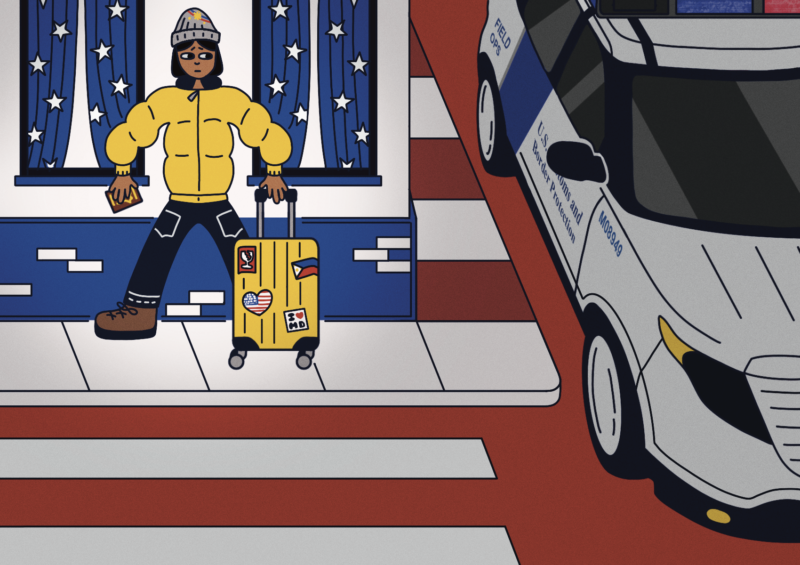Losing a loved one is never easy, but it is a challenge rarely faced alone. The funeral workers behind death’s humble abode are the silent companions of the bereaved.
EVERY YEAR, we hold celebrations of the day we were born to commemorate the gift of life. We count the days until our hair turns gray, celebrating birthday after birthday, and then the inevitable happens—death.
Cue the flowers, caskets, and crying family members. Their loved ones are left to carry their grief, but they are ultimately not alone. In the face of such sorrow, funeral homes comfort the inconsolable bereaved with beautiful, solemn wakes to send off the deceased. The loss of our dearly departed undoubtedly shatters our worlds, but funerary caretakers also take on the tough challenge of dealing with the ones left behind.
Deals with death
Josephine Biglang-Awa never thought that she would someday end up opening AJ Biglang-Awa Funeral Homes. Her sister—who also runs a separate funeral home—encouraged her to do the same, and in the summer of April 1997, Biglang-Awa established the business that would help many grieving families for years to come.
It was a small, humble business at first, and it was not everyday that a family would ask for a funeral service. “Maraming funeral homes, hindi lang kami (We aren’t the only funeral parlors around),” Biglang-Awa shares. Many competitors around the area brought in more patrons because hers was only a newly established one.
Eventually, the business grew as they gained more experience from organizing funeral wakes. Inevitable criticism from clients did not deter them but only fortified their intention to honor the bereaved and take part in their healing. As the quality of their services improved, they required more and more manpower. One secretary became three, and more drivers were hired as they bought more vehicles. Biglang-Awa shares that her biggest achievement is watching the business grow, increasing her employees’ salaries, and buying more cars to facilitate their services.

In 2018, they started offering free funeral services backed by the Department of Social Welfare and Development (DSWD). They provide indigent families the opportunity to send off their loved ones with respectable wakes without discriminating between free and paid clients. “Ang gagawin na lang ng pamilya ay iiyak (All the family has to do is cry),” Biglang-Awa says.
While they are compensated generously by the DSWD, reimbursements often take months. Biglang-Awa says that wake preparations necessitated spending money from their own pockets until the next unpredictable payday—but this became especially stressful during the height of the COVID-19 pandemic. They had more customers, but less money to work with.
Income aside, Biglang-Awa’s goal is ultimately to help others process their immense grief. Approaching two decades into the funeral business, the fulfilling encounters she has had with clients trump her business revenue. One that particularly tugged at her heartstrings was the story of a family that spent all of their life savings to hospitalize a relative who ended up passing away. Biglang-Awa’s patience and compassion in comforting such broken souls led to precious bonds with grateful clients who remember her up to this day.
Maria Merced Rubio—the AJ Biglang-Awa Funeral Homes secretary—also shares the same sentiments after so many encounters with death. Rubio feels dignified in taking care of a deceased loved one, especially upon comforting distressed clients. From the embalmers who preserve the deceased body to the secretaries who handle all the paperwork, the funeral home treasures the different stages of the funeral process when they can soothe a family in the throes of despair.

Life beyond death
Although working at a funeral home has been relatively fulfilling, fear and grief unavoidably creep into the hearts of funeral home employees. Working so closely with the dead was an unexpected leap of faith for Rubio, a nursing graduate. Haunted by her fears of the dead, Rubio initially struggled to work comfortably at the funeral home. “Ayoko talaga kasi takot ako sa patay, pero sabi naman, sa office lang ako (I never really wanted to go through with it because I’m afraid of the dead, but they told me I’d just be in the office),” she expresses. In her fear, Rubio would sometimes refuse touching or looking at the dead and their caskets, as superstitious beliefs implied it may result in the death of someone in her own family.
During the first few months in the funeral home, Rubio would also be the first to cry when learning about the different stories of their many clients. The deaths of young people broke her heart the most, transforming her into a more cautious person. She recalls the days when she would call home, warning her family members to watch out for expired food or medicine that could cut their lives short. The constant worry over her own life and her loved ones’ lives made her job emotionally exhausting.
Such encounters have changed Rubio’s perception on life and death. For instance, she says she would never forget the time a woman, along with the child she was bearing, passed away due to an ectopic pregnancy—a medical condition in which a fertilized egg grows outside the uterus. Having survived an ectopic pregnancy herself, Rubio narrates that her face paled and her knees buckled as she realized that she could have suffered the same fate. This led her to the epiphany that she should make the most of life’s fleetingness in service to others.
In an environment beset with delicate emotions, this service has demanded infinite amounts of patience, empathy, and understanding on the workers’ part. As Rubio’s responsibilities include initial discussions with those who inquire about their services, encountering the occasional rude or arrogant client became inevitable. “Siyempre kailangan mahaba ang pasensya mo (Of course, you have to be very understanding),” she shares.

The ones left behind
The ability to serve others in times of desperation and need is what pushes the employees of AJ Biglang-Awa Funeral Homes to persevere. “Service pa rin. ‘Yun lang talaga ang number one sa ‘kin (I choose service. It’s the number one thing to me),” Rubio shares, confident in the fact that she would choose to serve at a funeral home again, even in her next life.
Despite the many trials and tribulations someone in this grim line of work may face, individuals like Biglang-Awa and Rubio emphasize the dignified sides of being a caretaker of the dead. From ensuring funeral services progress smoothly to providing comfort for the bereaved, funeral home employees do their best to provide aid in delicate moments of life and death.
“‘Pag ang nasa puso mo makapag-service ka, pipiliin mo ang funeral (If providing service is in your heart, you’ll choose [working] for funeral services),” Rubio shares. Through the work they carry out, funeral home employees help the bereaved find peace by bringing their loved ones to peace as well.






